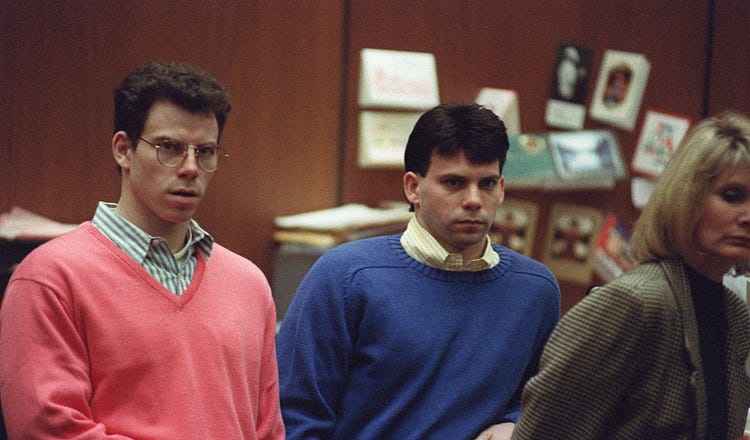Don’t Feel Sorry for the Menendez Brothers

“Killing someone isn’t self-defense unless you believe they’re about to kill you. That’s not the case with Lyle and Erik Menendez,” Alan Abrahamson writes for The Free Press. (Vince Bucci via Getty Images)
A new Netflix documentary has led many people to question whether the Menendez brothers should still be in prison. The answer is simple: Yes.
168
By the summer of 1993, when the trial of Lyle and Erik Menendez began, Southern California had seen Rodney King, riots, wildfires, and mudslides. The trial was a different iteration of front-page Los Angeles news, the first in a succession of “Crimes of the Century.” It was O.J. before O.J.
I was the Los Angeles Times staff writer who covered the first o…
Continue Reading The Free Press
To support our journalism, and unlock all of our investigative stories and provocative commentary about the world as it actually is, subscribe below.
$8.33/month
Billed as $100 yearly
$10/month
Billed as $10 monthly
Already have an account?
Sign In

